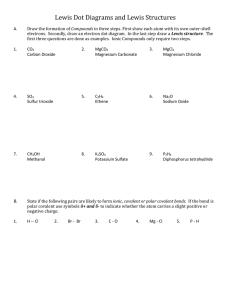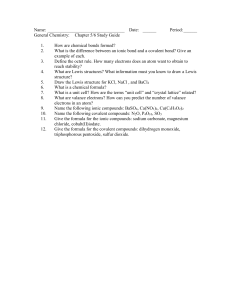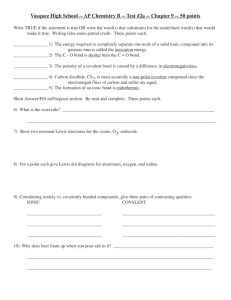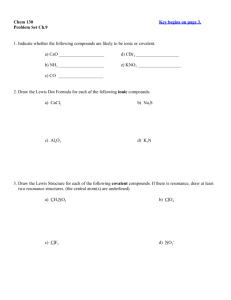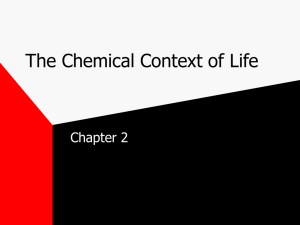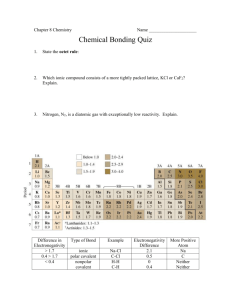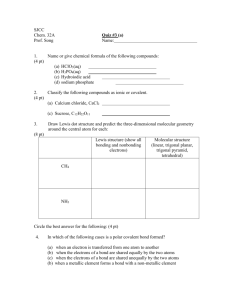1 - Solon City Schools
advertisement
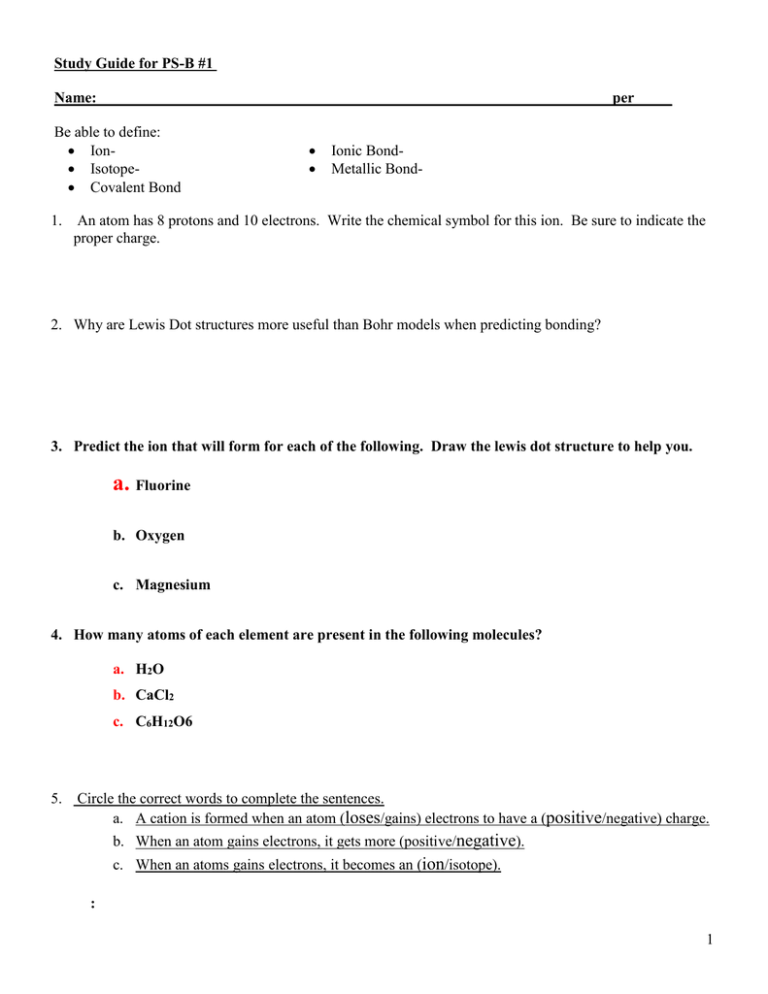
Study Guide for PS-B #1 Name:____________________________________________________________________ per_____ Be able to define: Ion Isotope Covalent Bond 1. Ionic BondMetallic Bond- An atom has 8 protons and 10 electrons. Write the chemical symbol for this ion. Be sure to indicate the proper charge. 2. Why are Lewis Dot structures more useful than Bohr models when predicting bonding? 3. Predict the ion that will form for each of the following. Draw the lewis dot structure to help you. a. Fluorine b. Oxygen c. Magnesium 4. How many atoms of each element are present in the following molecules? a. H2O b. CaCl2 c. C6H12O6 5. Circle the correct words to complete the sentences. a. A cation is formed when an atom (loses/gains) electrons to have a (positive/negative) charge. b. When an atom gains electrons, it gets more (positive/negative). c. When an atoms gains electrons, it becomes an (ion/isotope). : 1 6. State the octet rule. Why does it not apply to Helium? 7. How many protons, neutrons and electrons are in the following: a. C-14 p=_____ n=______ e=______ b. C-12 p=_____ n=_______ e=______ c. O 2- p=_____ n=_______ e=______ 8. What is the “rule of thumb” when determining if atoms will form an ionic or covalent bond? 9. What kind of bond will form for each of the following compounds: Metals/Nonmetals Electronegativity diff Molecule Type of bond (ionic, metallic, nonpolar covalent, or polar covalent) HCl Cu2 MgO NO2 H2O CaCl2 NaCl O2 2 Determine whether the following molecules will have ionic or covalent bonds, draw the appropriate Lewis structure, and name the compound (or write the formula) 1. CH4 Ionic or Covalent Lewis Chemical name: 2. Sodium Oxide Ionic or Covalent Lewis Chemical Formula: 3. Phosphorus Trichloride Ionic or Covalent Lewis Chemical formula: 3 4. BaCl2 Ionic or Covalent Lewis Chemical name: Name the following compounds: 1. P2O5 2. SrO 3. SiF4 4. CO 5. KCl Write the following formulas: 1. Magnesium Oxide 2. Carbon dioxide 3. Dinitrogen trioxide 4. Francium Sulfide 5. Barium Iodide 4 \ 5
